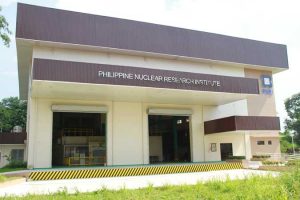THE creation of a new agency that will oversee nuclear power will assure objective regulation of the development of the industry, especially in the areas of safety and security, the head of a nuclear research institution said.
Responding to claims that a separate regulator is unnecessary, Carlo A. Arcilla, director of the Philippine Nuclear Research Institute (PNRI), told BusinessWorld by phone: “You don’t normally want to have a situation where a body will regulate itself.”
The PNRI is an arm of the Department of Science and Technology tasked with conducting research into the safe and peaceful use of nuclear energy in the Philippines. Mr. Arcilla said that transferring regulatory powers to a different agency would help avoid conflict of interest.
The House nuclear energy committee is currently discussing a bill proposing to create the Philippine Atomic Energy Regulatory Authority or PhilATOM, which will take on the regulatory functions that the PNRI currently holds.
A science advocacy organization has called the bill unnecessary, calling instead for the expansion of the PNRI’s powers.
Pedro H. Maniego, Jr., senior policy advisor of the Institute for Climate and Sustainable Cities, said in an e-mail, “If we are embarking on the peaceful use of nuclear power, such as power generation, a regulatory body is needed to ensure compliance with international and domestic standards and regulations.”
The proposed PhilATOM also calls for controls on radioactive materials and related equipment, which will be regulated under the guidance of the International Commission on Radiological Protection, subject to norms prescribed by the International Atomic Energy Authority.
The proposed agency will be headed by a director general and deputy director-general, who will be appointed by the President of the Philippines.
Advocates of Science and Technology for the People, the group that opposed the bill, also said that nuclear waste disposal could affect the safety of nearby communities.
Mr. Arcilla assured that nuclear waste “will be buffered or wrapped in a material called bentonite,” which traps nuclear waste material, and will be buried more than one kilometer deep on isolated islands. He added that the bill requires the creation of a viable disposal plan.
Mr. Arcilla reiterated the need for the Philippines to stay on track towards developing nuclear energy, which supplies 10% of the world’s electricity.
He noted that nuclear could be the solution to soaring electricity rates. He cited South Korea’s nuclear power plants, which started the same time as the Philippines’ nuclear energy program.
“(South Korea’s nuclear power plants) have been running for almost 40 years profitably and very safely. They recovered the investment in only six years… and the electricity rate is half that of ours, while their GDP (gross domestic product) is almost 10 times that of ours, because when you have cheap electricity, it helps in industry,” he said.
PNRI however noted that it still needs a larger budget as it looks to develop nuclear medicine and equipment, particularly for cancer diagnosis. — Beatriz Marie D. Cruz
